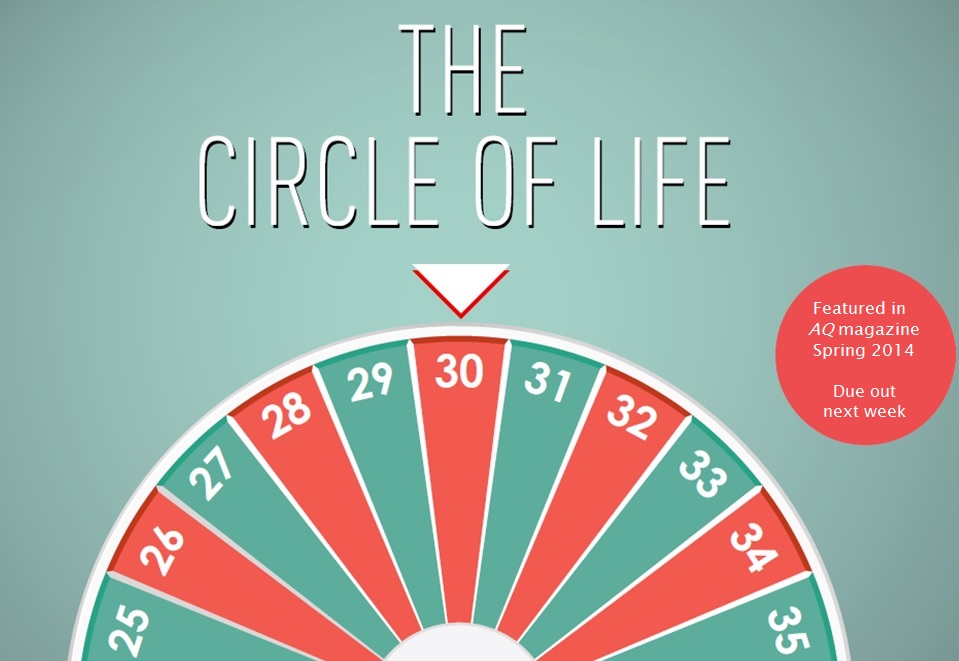Much has been written about the generation gap in today’s workplace. All the research indicates that Baby Boomers are very different to Generation Y. But is the truth that simple?
In our Spring 2014 issue of AQ magazine – due out next week – we asked Nick Andrews, Sequel’s Business Development Director to look at the generation gaps in today’s workplace.
He argues that although one size does not fit all when it comes to employee engagement, labelling people by their generation might not be the right approach.
Even my ring tone (on my iPhone5 – FYI) blasts out ‘Call Me Maybe’; a tune popular with my eight year-old daughter. What does this say about me? Either I’m fighting an undignified battle against advancing years or, just perhaps, I’m adapting to a changing world.I turn 50 this year. Apparently this makes me a digital immigrant who would prefer to communicate by email or SMS text messaging. Wrong! I’m equally happy to use FaceTime, WhatsApp and any other app designed for the younger generations.
 That’s why when I see tables categorising different age groups, I take them with a pinch of salt. Not because it is complete rubbish – we are all different – but because when it comes to engaging people, life is a little more complicated.
That’s why when I see tables categorising different age groups, I take them with a pinch of salt. Not because it is complete rubbish – we are all different – but because when it comes to engaging people, life is a little more complicated.
Take work benefits for example. Research from Barclays shows that although different generations have different aspirations, there are still common themes that tie people together and anomalies in identified brackets that mean today’s employers have to be as flexible as possible.
But coming up with a pay and reward structure that suits everyone, for example, is a tough ask.
Barclays’ new research, Talking About My Generation: Exploring the Benefits Engagement Challenge, looked at the financial aspirations, concerns and priorities today’s workforce, revealing how staff really feel about benefits.
“There is a great demand among all generational groups for flexibility and tailoring of packages, but significantly the research high-lighted the fact that traditional benefits packages are not meeting the expectations and lifestyle of younger generations,” says Paul Redmond, who led the study and is an expert on generational theory at the University of Liverpool.
The study found benefits are critical for all generations when it comes to finding a job. For instance, six in 10 of those surveyed cited that a comprehensive benefits package is a key factor when job hunting.
However, the survey reports that many of those packages aren’t fit for purpose with 85 per cent of respondents saying their current benefits package failed to provide the support and flexibility required to meet present and future financial needs.
 Katharine Photiou, the Head of Workplace Savings at Barclays Corporate and Employer Solutions, says employers need to “adapt to survive”, or younger generations could suffer.
Katharine Photiou, the Head of Workplace Savings at Barclays Corporate and Employer Solutions, says employers need to “adapt to survive”, or younger generations could suffer.
“Most stark from the research is the fact that the expectations of the younger generations in today’s workforce are not being met by the benefits currently on offer,” she says.
The findings from Barclays are backed up in part by a new survey carried out by global business consultancy Deloitte which also concluded that younger generations are concerned with the societal impact of an organisation.
Apparently businesses need to be more innovative and do more for society if they are to attract the leaders of tomorrow.
The survey of almost 8,000 young people showed that more than 60 per cent of Generation Yers felt businesses could do more in the areas of resource scarcity, climate change and income equality.
The “millennials study” of those born between 1983 and 2000 is in its third year. Innovation, a common theme from last year, was again a forerunner in the most recent results.
 It found Gen Yers want to work for organisations that foster innovative thinking, develop their skills and make a positive contribution to society.
It found Gen Yers want to work for organisations that foster innovative thinking, develop their skills and make a positive contribution to society.
Deloitte New Zealand consulting partner Hamish Wilson said businesses should develop a culture of innovation.
“Developing a culture of innovation in an effort to meet the increasing expectations of millennials will not only help retain talented individuals, but will also better position businesses looking to promote innovative thinking as a form of differentiation,” he said.
“It is clear that businesses will continue to look to innovation as a means of stimulating growth, and millennials will be key players within these initiatives.
“As millennials will make up an estimated 75 per cent of the global work force by 2025, business must work to foster innovative thinking, nurture emerging leaders and endeavour to have an increased positive impact on society other than simply generating jobs,” he continues.
“These steps will attract and retain individuals who may otherwise choose to operate independently, and allow agile businesses to capitalise on new innovative perspectives.”
That’s all very well. And I’ve no doubt it’s true. But I’d also argue that there are some of us who are in more advanced years who share the same thoughts – corporate social responsibility isn’t just for the under 30s!
What would be interesting is for you – our AQ readers – to look at the chart we’re reproducing here and see if you fit the category you’ve been assigned to or like me don’t necessarily tick the appropriate box.
Send us your views – and your thoughts on the impact of workplace benefits and communication to a diverse workforce – to nick.andrews@sequelgroup.co.uk.
Failing that, you could always FaceTime me. Or send me a WhatsApp!